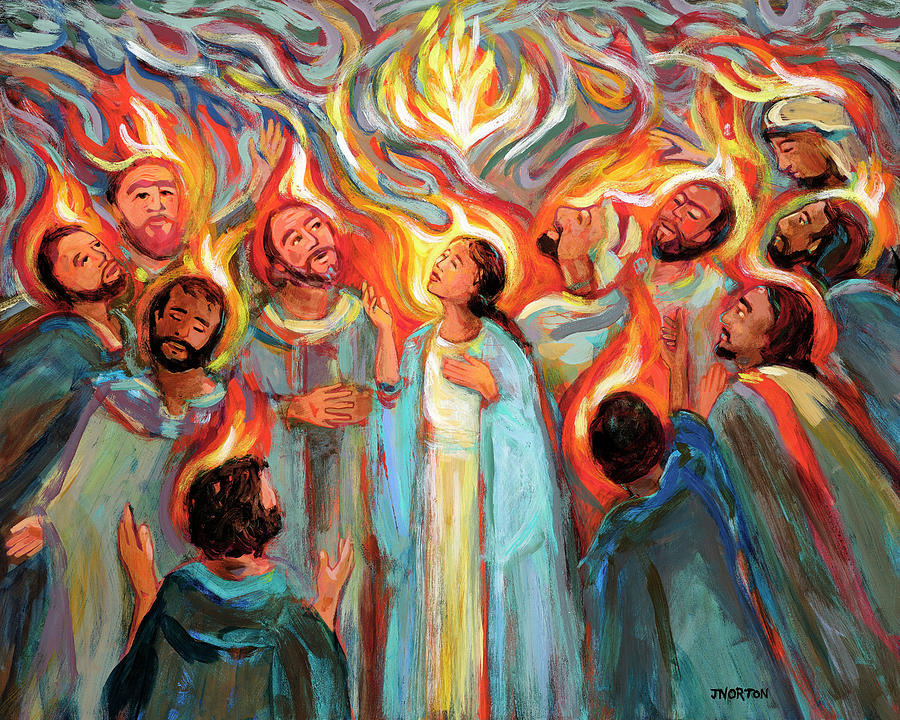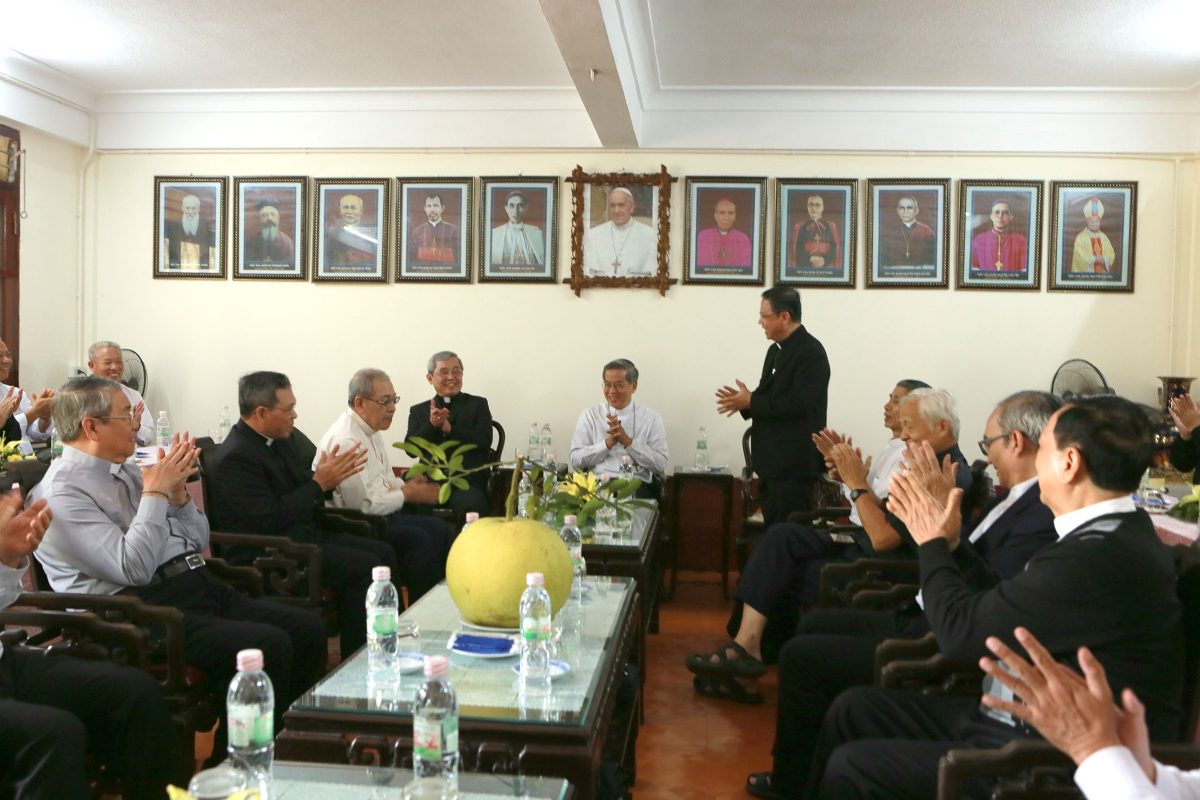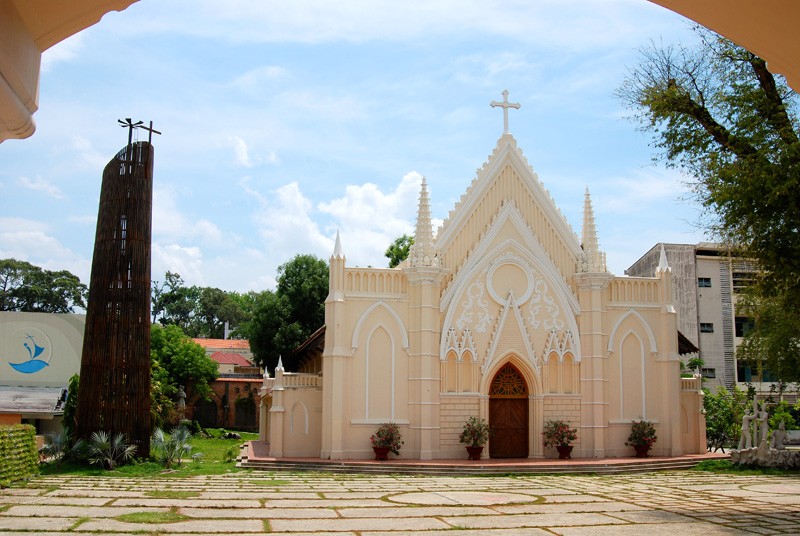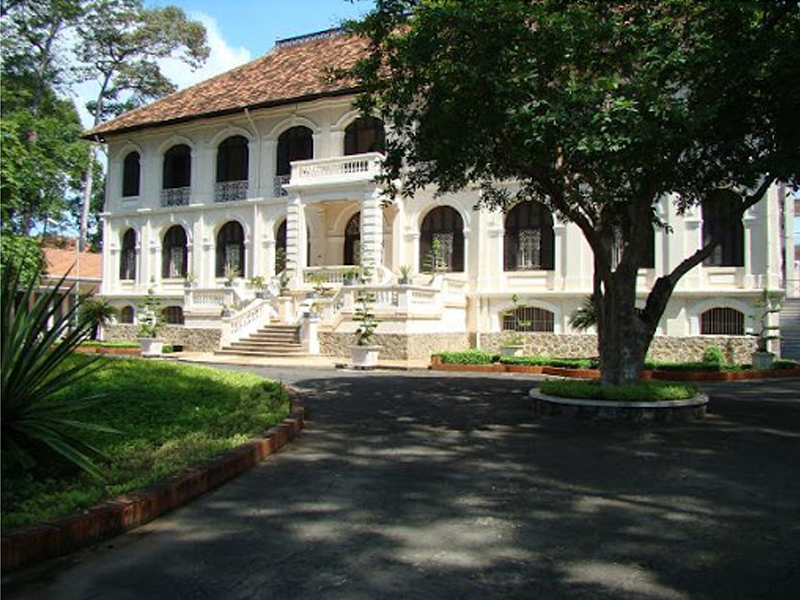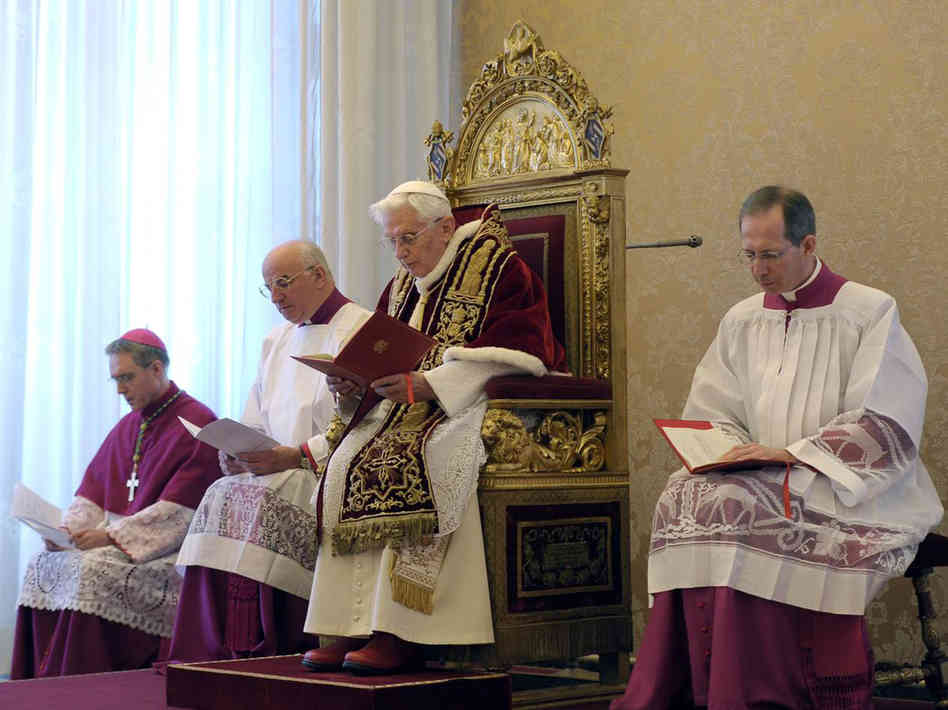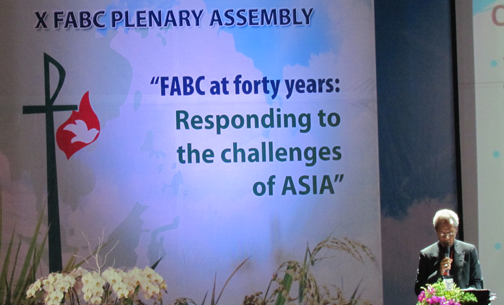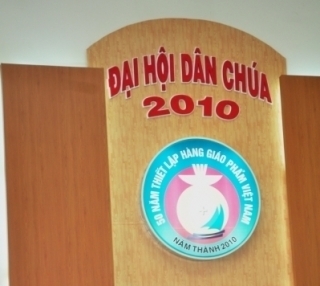The last statement of BISCOM 8
Eighth Bishops’ Institute for Social Communication (BISCOM VIII)
“Social Media: Surfing, Networking, Blogging, Gaming, Addiction,
Challenges and Opportunities for Communication Ministry in Asia”
Assumption University
Suvarnabhumi Campus, Bangkok, Thailand
September 3-9, 2012
ORIENTATIONS AND RECOMMENDATIONS
Introduction
We, the 45 participants – bishops, and representatives- from the Federation of Asian Bishops’ Conferences (FABC) – gathered at Assumption University, Bangkok, Thailand, September 3-9, 2012, for the eighth “Bishops’ Institute for Social Communication (BISCOM VIII) to study the theme “Social Media: Surfing, Networking, Blogging, Gaming, Addiction, Challenges and Opportunities for Communication Ministry in Asia.”
With the help of expert resource persons, we studied the rapidly growing and expanding situation of social media in Asia, its impact on all sections of people, particularly the young, and its implications for pastoral ministry in the Church. We, the delegates, welcome the modern means of communication, more particularly the new media of social networks as valuable “gifts of God” and opportunities to build social networks and foster friendship and communion. We also recognize the immense potential and opportunities new media offer for education, evangelization and faith formation.
BISCOM VIII welcome the rich and timely exhortations of Pope Benedict XVI calling upon Bishops, Priests, Religious and Laity to adopt the new media of social communication with pastoral zeal and creativity. The church has unhesitatingly welcomed new technological developments as opportunities to carry out the mission entrusted to her by the Lord with greater pastoral zeal and fruitfulness. The three World Communication Day messages of Pope Benedict XVI in 2009, 2010 and 2011 have underlined the need to embrace the new media. These messages as well as other documents of the Church and the guidelines of the Pontifical Council for Social Communications on new media provide us with much food for reflection and offer important pastoral guidelines on how to be effectively engaged in the mission of the Church.
According to the message for the World Communications Day 2009, the new digital technologies bring about fundamental shifts in patterns of communication and human relationships. These changes are particularly evident among young people who have grown up with new technologies and are at home in a digital world. Calling these technologies as truly a gift to humanity, the text says “We must endeavor to ensure that the benefits they offer are put at the service of all human individuals and communities, especially those who are most disadvantaged and vulnerable.”
Reflecting on the significance of new technologies, the Pope noted the importance of focusing “not just on their undoubted capacity to foster contact between people, but on the quality of the content that is put into circulation using these means.” He urged all people of good will who are active in the emerging environment of digital communication to commit themselves to promoting a culture of respect, dialogue and friendship.
In his message for the World Communications Day 2010 “The Priest and Pastoral Ministry in a Digital World: New Media at the Service of the Word,” which marked the Year for Priests, Pope Benedict XVI focused on the important and sensitive pastoral area of digital communications, in which priests can discover new possibilities for carrying out their ministry to and for the Word of God. While affirming that the Church has always used the modern media for fostering communication, engagement with society, and, increasingly, for encouraging dialogue at a wider level, the Pope noted that the “recent, explosive growth and greater social impact of these media make them all the more important for a fruitful priestly ministry.”
In the 2011 message the Pope said the Christian way of being present in the digital world takes the form of a communication which is honest and open, responsible and respectful of others. To proclaim the Gospel through the new media means not only to insert expressly religious content into different media platforms, but also to witness consistently, in one’s own digital profile and in the way one communicates choices, preferences and judgments that are fully consistent with the Gospel, even when it is not spoken of specifically. Furthermore, it is also true in the digital world that a message cannot be proclaimed without a consistent witness on the part of the one who proclaims it.
RECOMMENDATIONS
Aware of the positive and negative impact of social media in the Asian situation, the prophetic discipleship and witnessing apostolate should penetrate cyberspace at all levels. Social media as the new communication revolution needs to be embraced and utilized to enhance and extend the existing propagation of the Gospel in order to encourage a communion of communities for faith formation.
In line with the foregoing, the following recommendations are made:
1. That the invaluable insights contained in Church documents on social communications be made accessible and available to all ages and levels of the faith community: in this regard that the FABC –OSC initiates action to form a group of experts in theology and ICT that will represent those insights through popular social media avenues.
2. Further to BISCOM VI (2007) Recommendation no. 1, Re/design a pastoral plan that integrates social communications in all apostolate at every level: FABC, Episcopal Conferences, Dioceses and parishes inclusive of traditional and the evolving culture of social media for faith formation.
3. Organize and commission competent “digital ambassadors” to inspire, animate, guide, and train bishops, priests, laity in FABC, Episcopal Conferences, Dioceses and parishes for social media apostolate as a ministry of social communication toward values and faith formation. The training and animation have to be part and parcel of the pastoral plan.
4. Foster and network operational teams of interested, and trained digital practitioners to influence netizens through social media in the Regional national and diocesan levels.
Latest Posts
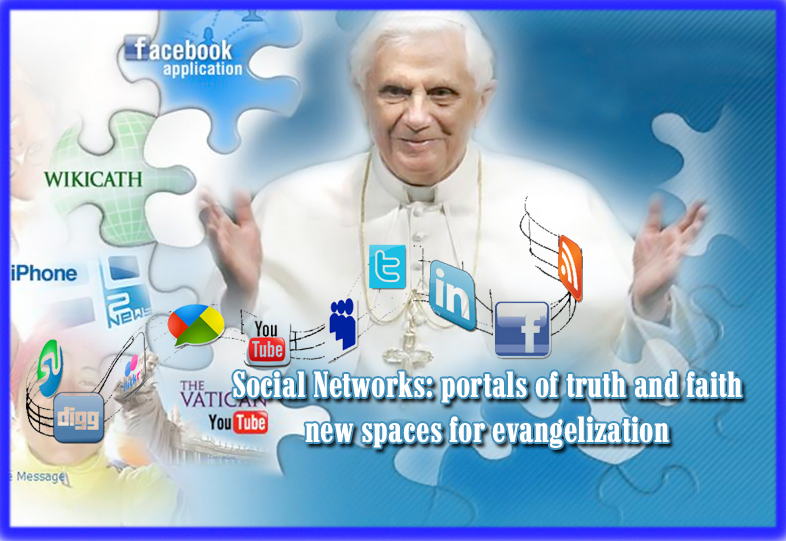
- Message for the 47th World Communications Day
-
Message of the FABC 10th Plenary Assembly Released -
Asia’s Bishops: Church Needs Renewed Evangelizers -
10 FABC Plenary Assemblies -
Instrumentum Laboris of FABC X Plenary Assembly -
FABC Plenary Assemblies: An Attempt to Discern the Signs of the Times in Asia -
On the Conclusion of the Synod of Bishops -
Final List of Propositions of the Synod of Bishops -
Official Summary of the Final Message of the Synod of Bishops -
Pope's Lenten message 2013: Believing in charity calls forth charity
Popular Post

- History of the Catholic Church in Vietnam
-
FABC Plenary Assemblies: An Attempt to Discern the Signs of the Times in Asia -
Message of the FABC 10th Plenary Assembly Released -
Asia’s Bishops: Church Needs Renewed Evangelizers -
Instrumentum Laboris of FABC X Plenary Assembly -
10 FABC Plenary Assemblies -
Final List of Propositions of the Synod of Bishops -
Message for the 47th World Communications Day -
Official Summary of the Final Message of the Synod of Bishops -
On the Conclusion of the Synod of Bishops




